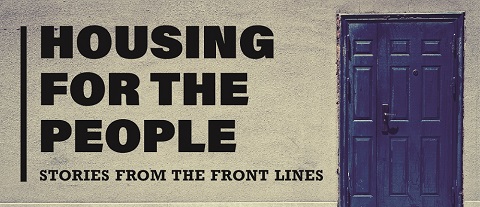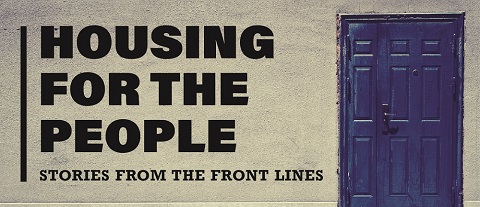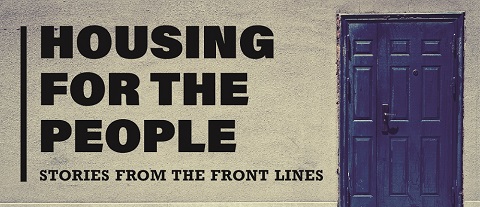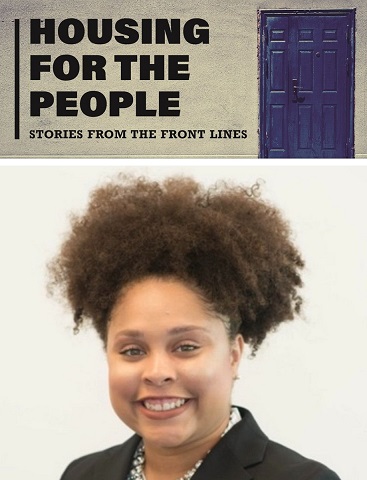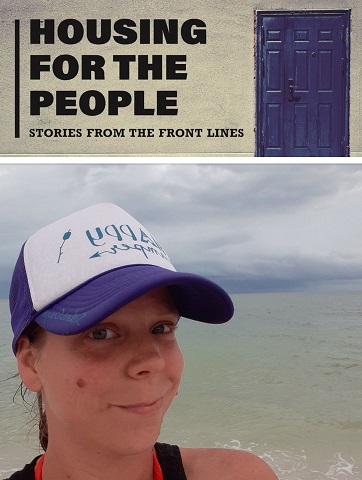European countries are facing a homelessness and housing exclusion “crisis”, according to a new report from EU housing organisation Feansta.
Launched in the European Parliament in Brussels on 21 March, the Second Overview of Housing Exclusion in Europe reveals alarming trends in homelessness in the majority of European Union countries.
“Homelessness is increasing in almost all countries,” said Feantsa director Freek Spinnewijn. “Relative poverty is going down in Europe, but extreme poverty – and, notably, homelessness – is going up, and going up very fast. This is an emergency and action is needed.”
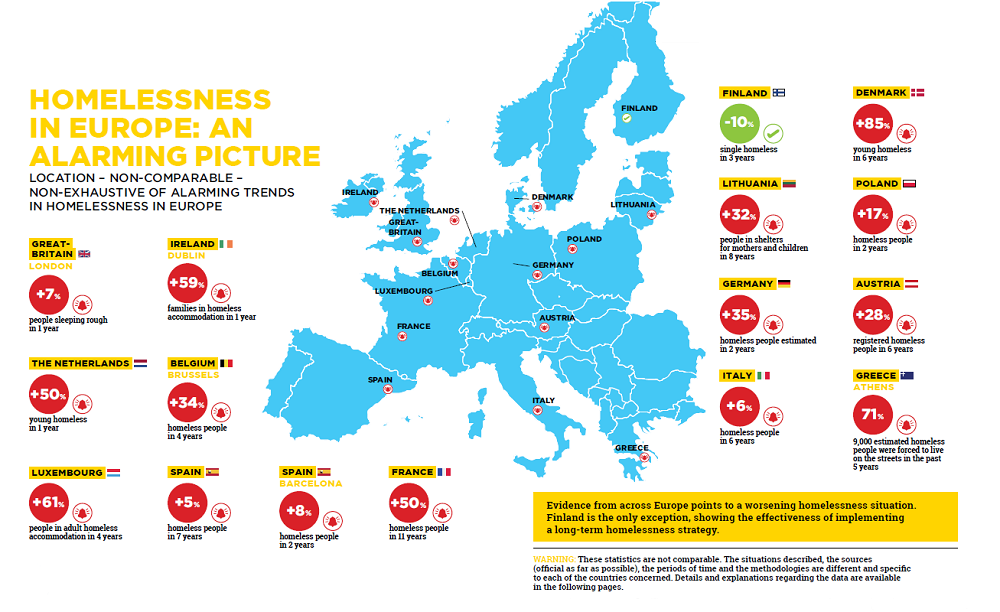
Feansta’s report, created in conjunction with French housing charity Fondation Abbé Pierre, brings together a series of studies that paint a troubling picture of housing exclusion.
Germany has seen a 35% increase in homeless people in two years. In Austria the number of people registered as homeless has gone up by 28% in six years.
In the UK, 7% more people were sleeping rough in London between 2015 and 2016. Spain has seen an increase in homelessness of 5% in seven years, while Italy has seen an increase of 6% in six years.
In Denmark, a national census of homeless people revealed a 23% increase in homelessness overall between 2009 and 2015 – but a shocking 85% increase in homeless young people.
In response, Feantsa has launched a new campaign – ‘Be Fair, Europe – Stand Up for Homeless People’ – to push EU policymakers to do more to put an end to homelessness, including using European funds on homelessness-reduction programmes. INSP is a media partner on the campaign. In the coming months, we will be covering achievements and talking to key European figures about the campaign.
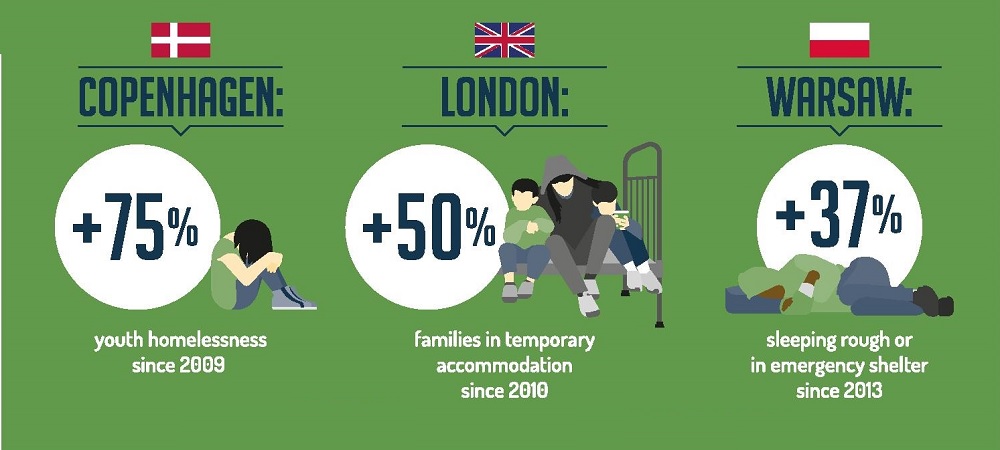
“We want the European Union to stand up for the rights of homeless people,” Spinnewijn explained. “Homelessness is not currently looked at as a fundamental rights violation. I think there is room for the European Union Agency for Fundamental Rights to start doing that.”
Irish MEP Marian Harkin, a member of the European Parliament’s Committee on Employment and Social Affairs, echoed Feantsa’s concern about trends in homelessness across Europe. She said that the parliament had recently called on EU member states to deliver on the right to adequate housing.
“There is alarming evidence to show the rising trends of homeless people in all European countries, except in Finland,” she said. “Over the last 15 years, housing prices have been rising faster than incomes. In the EU, poor households’ average expenditure in housing represents 42.5% of their disposable income, which is a housing cost overburden.”
Raquel Cortes Herrera, Deputy Head of Unit, of the European Commission’s Directorate-General for Employment and Social Affairs, cautioned that the Commission does not have to power to act directly to reduce homelessness in the EU. However, she said that they, too, would continue to use their influence to push member states to act.
She added: “The Commission is aware that there is a problem. The Commission is aware that it is a European problem… It wants to send a clear signal to the member states saying that this is an issue and your responsibility, but we are not going to wash our hands of it. We are going to be watching you and what you do to solve this problem.”
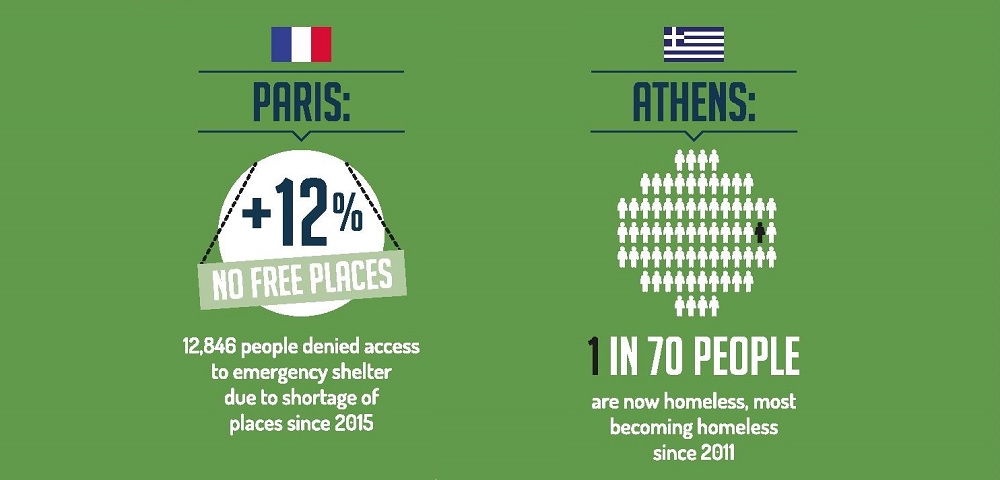
One of the key aims of the ‘Be Fair, Europe – Stand Up for Homeless People’ campaign is to encourage the EU to collect meaningful statistics around homelessness. Currently, each European government measures homelessness differently.
Though the Feantsa report brings together the best available information for each country, the variation in what is being measured, and how it is being measured, makes comparison – and therefore benchmarking – almost impossible.
“The European statistical institute [Eurostat] does not collect any data on homelessness. It is a scandal, because if you don’t count it, you don’t exist in European Union policy,” said Spinnewijn.
Among the almost universally sobering statistics in the report, one country bucked the trend. Finland reduced its number of homeless single people by 10% in the three years from 2013 to 2016.
Ruth Owen, Policy Coordinator for Feantsa said: “Finland has done remarkably well on long-term homelessness because it chose to invest in Housing First, which is a programme that provides people with housing as soon as they possibly can, and then supports them in the housing. They’ve also done well because they focus a lot on prevention. They’ve invested enormously both in social housing and in allowances to help people with the cost of housing.”
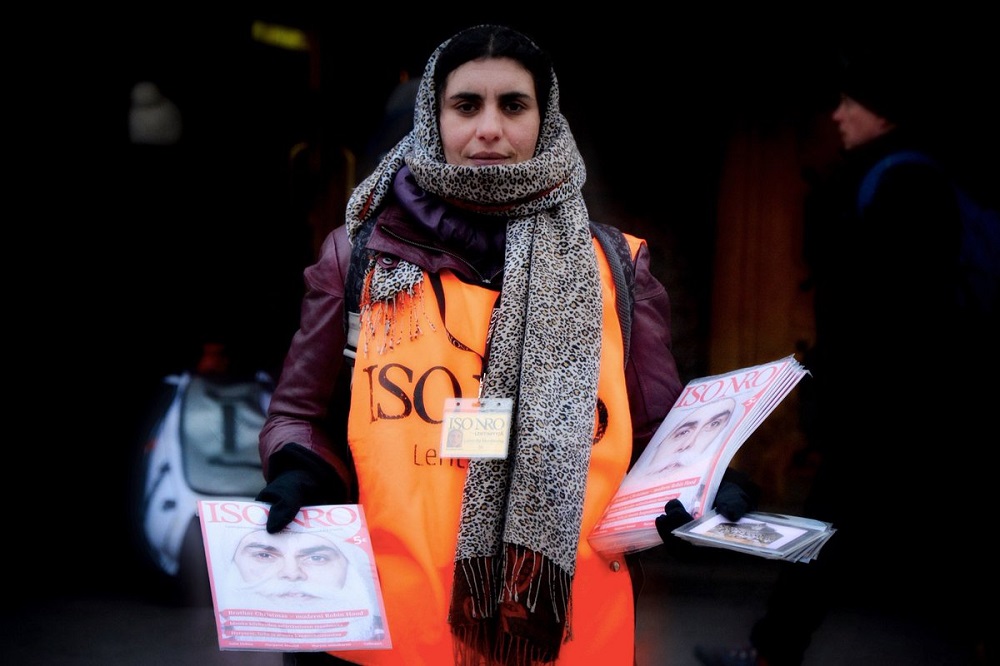
Reacting to the praise for his home country, the editor of Finnish street paper Iso Numero, Janne Hukka, said that there had been a clear improvement but the progress was challenged by increased immigration.
“Until recently homelessness has been largely dealt with in the context of the traditional welfare state which, especially in Finland’s case, was very homogeneous both socially and ethnically. Within that framework the Finnish Housing First policy has been a tremendous success,” he said.
“Free movement within the EU as well as the refugee situation is changing the situation quite a bit. The current centre-right coalition government has pursued a very strict immigration policy and it remains to be seen which way the homelessness situation is going to develop. The consensus among local NGOs and human rights experts is that government policies are going produce a sharp spike in the numbers of undocumented migrants – and with that, new forms of homelessness.”
Most Iso Numero vendors are not Finnish and therefore fall outside the scope of social services due to their residency status.
Hukka added: “Finland’s leadership [of the European debate on homelessness] depends largely on whether the policy-makers adapt to this new status quo and make housing also available to individuals who do not fall within the narrow scope of citizenship.”
Join Feansta’s campaign online and let INSP know what you think Europe should be doing about homelessness by tweeting us at @_INSP and using the hashtag #BeFairEU.
INSP members can download this story here.















